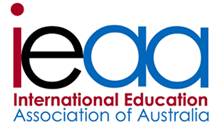Australian Education Agents - Performance data to go public

It was during the 2018 Australian International Education Conference (AIEC 2018), that the Minister for Education, the Hon Dan Tehan MP, announced the departments commitment to publish performance data on education agents. International education agents facilitated 73.6% of overseas enrolments in the year 2017, a trend which is on the grow in top source markets for Australia. The chart below provides the breakdown of student enrolments facilitated by an education agent:
1. China 76.5%
2. India 68.6%
3. Nepal 83%
4. Brazil 89.2%
5. Korea, Republic of (South) 84.6%
The performance data includes student enrolment outcomes and student visa outcomes. Enrolment outcomes show whether a student went on to:
successfully complete their enrolment
transfer to another provider
notify early cessation of their studies
have their studies terminated for non-payment of fees or disciplinary reasons
be reported for unsatisfactory course progress or course attendance
defer or suspend their studies
not complete for any other reason.
Student visa outcomes show whether:
a student visa application was granted
a student visa application was refused
a student visa application was withdrawn
a student visa application was invalid
a student visa was cancelled.
Benefits of publication of agent performance data
Providing greater transparency of agent performance through publication of data relating to student enrolment and visa outcomes will support stakeholders and encourage better practice in the international education system overall.
Providers will gain an improved understanding of the agents they have engaged and other agents working in the international education system, through the availability of a more detailed range of data that allows comparisons. This will assist them to make more informed choices as to which agents they engage to represent them and encourage good management practices in accordance with the requirements of the ESOS Act and National Code.
Agents will gain an improved understanding of their performance relative to that of other agents working in the international education system. This will encourage them to evaluate their own performance and engage in continuous improvement in accordance with the requirements of the National Code.
Students will be given access to information on the performance of individual agents for the first time. This will enable them to make a more informed choice from amongst the large range of agents available to them. Students will also benefit from better practice by providers and agents, facilitating improved consumer protection under the ESOS legislative framework and better individual outcomes.
When
The data is expected to be made public by Mid 2019
The Impact
Although its a bit too early to gauge the impact of this step on the three key stakeholders - Education providers, Agents and Students, but some of the anticipated effects could be:
1. Education agents would potentially be able to gauge their performance against their counterparts on a global scale.
2. Education Providers, will have further access to pivotal information about the agents and can potentially tighten their recruitment endeavours by choosing and culling their extensive agent network.
3. Potential students to benefit by having the option to compare agents and make an informed choice. This could lead to being the main source of information available to potential international students.
This move by the Department is surely to cause a big stir in the market and bound to effect the recruitment practices, business models and the students perceptions. A lot remains to surface out and we would surely be keenly watching and following the events as they unfold.



















